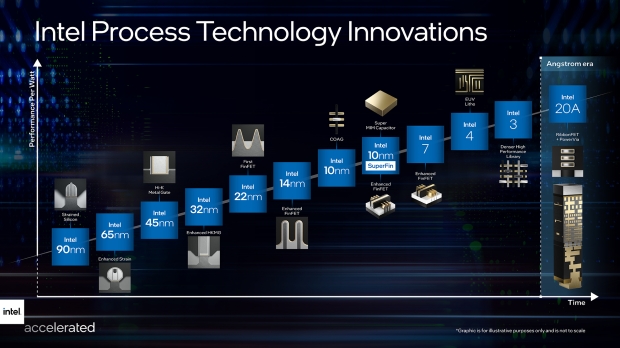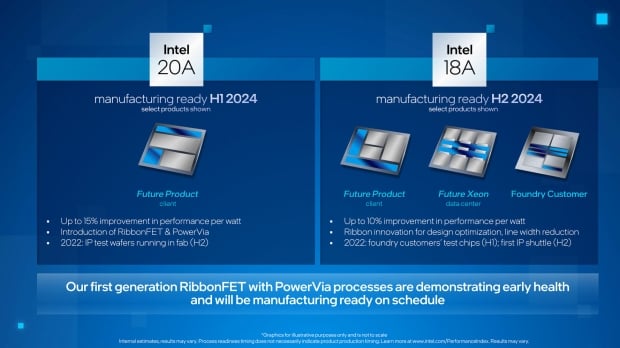Intel has announced it will no longer be using its in-house Intel 20A process node for its next-gen Core Ultra 200 series "Arrow Lake" processors, and that it will use external nodes from partners... you know, TSMC.

TSMC will handle most of the Tiles on the Arrow Lake SoC -- CPU, GPU, NPU, I/O -- while Intel Foundry will handle the packaging of the manufactured chiplets into the final processor. Intel CFO Dave Zinsser said that the company would "skip over productizing" the 20A node to reduce capital expenditures and spending. Intel should save around $500 million from skipping its 20A process node.
Intel says that its upcoming 18A process node remains on track to launch in 2025, with the company shifting resources from 20A to the newer 18A. No more spending time and money on Intel 20A, everything is being poured into Intel 18A now, to bring the node to full production.
All of the work that has gone into Intel 20A won't be wasted, as everything learned will be used and improved for Intel 18A, with technologies include PowerVia backside power delivery technology, which routes power for the transistors through the backside of the processor die, this will be in Intel 18A.
- Read more: Intel rumored to outsource even more 3nm manufacturing to TSMC for advanced packaging
- Read more: Acer's new Predator Orion 7000: world's first PC with Intel's new Arrow Lake CPU
- Read more: Intel's next-gen Arrow Lake CPUs launching alongside new Z890 mobos on October 17
Intel has announced that its Intel 20A process node will not be used for its new Core Ultra 200 series "Arrow Lake" CPUs, and that it will be "built primarily using external partners" (TSMC) and packaged by Intel Foundry.



